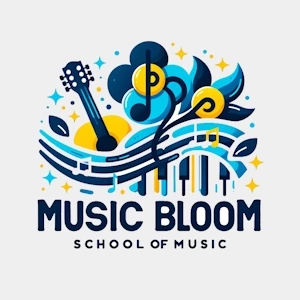1. Cognitive Benefits: Boosting Your Brainpower
Learning to play the piano challenges your brain in unique ways. It requires focus, coordination, and memorization—all of which stimulate cognitive function. Studies have shown that adult piano players often experience improvements in:
- Memory: Memorizing sheet music or chords can enhance your memory skills.
- Concentration: Practicing regularly improves your ability to focus for extended periods.
- Problem-Solving Skills: Decoding musical notation and interpreting dynamics and rhythms engage critical thinking.
These mental workouts can help keep your brain sharp as you age, reducing the risk of cognitive decline.
2. Emotional Benefits: Finding Your Inner Calm
Playing the piano is a powerful stress reliever. It provides a creative outlet for expressing emotions and can help you unwind after a long day. The act of playing, especially when it’s music you love, triggers the release of dopamine—the feel-good hormone—leaving you more relaxed and happier.
Moreover, tackling challenges like learning a complex piece builds resilience and a sense of accomplishment, boosting your self-confidence.
3. Social Benefits: Building Connections
Music brings people together. As a pianist, you can connect with others through performances, jam sessions, or simply sharing your favorite tunes. Joining a piano class or participating in music events introduces you to a community of like-minded individuals.
If you have family or friends who play instruments, your piano skills can be the foundation for creating lasting memories through ensemble playing.
4. Physical Benefits: Enhancing Coordination and Dexterity
Playing piano strengthens hand-eye coordination and fine motor skills. The requirement to use both hands independently engages both hemispheres of the brain, enhancing overall coordination. Regular practice also improves finger strength and agility, making your hands more flexible and precise.
5. Lifelong Learning: It’s Never Too Late
One of the most encouraging aspects of learning the piano as an adult is that it proves you’re never too old to learn something new. Adults often approach learning with more patience and discipline than children, which can lead to steady progress and deep personal satisfaction.
You’ll also have the freedom to choose the music you love—from classical pieces to jazz standards or modern hits—making the learning process more enjoyable and tailored to your tastes.
6. Creative Expression: Unleashing Your Artistic Side
The piano is one of the most versatile instruments, capable of conveying a vast range of emotions. As you become more skilled, you’ll discover the joy of interpreting and expressing music in your unique way. Improvisation and composition can add an additional layer of creativity, allowing you to craft your own musical stories.
7. Physical and Mental Discipline: Building Good Habits
Consistent practice instills a sense of discipline and routine, which can positively influence other areas of your life. The persistence required to master challenging pieces teaches patience and perseverance, traits that are valuable both on and off the keyboard.
Final Thoughts
Playing the piano as an adult is not just about learning an instrument—it’s about enriching your life. From boosting brainpower and relieving stress to fostering creativity and social connections, the benefits of playing piano extend to every facet of your well-being.
So, why wait? Whether you’re 30, 50, or 70, it’s never too late to start playing piano and experience the transformative power of music. Sit down at those keys, and let your musical journey begin!
